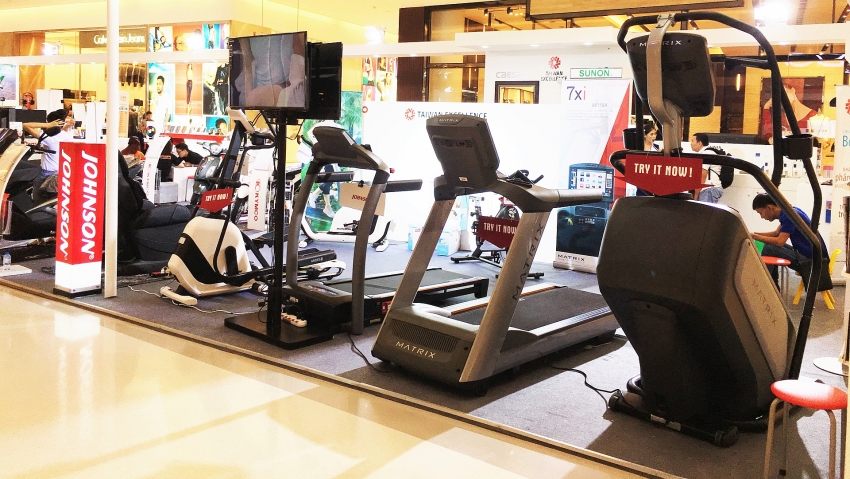Johnson Health Tech to launch new facility in Vietnam
 |
| Johnson Health Tech began diversifying manufacturing bases before the game-changing US-China trade war |
Taiwan’s Johnson Health Tech Co. says it will be an unexpected winner from trade tensions that are hurting most global companies’ bottom lines.
The world’s third-largest gym equipment maker expects to launch a new factory in Vietnam, which it began planning before the US-China trade war, to allow it to escape tariffs on "Made in China" gym equipment. Its rivals are unlikely to be so lucky, allowing the company to reach its goal of becoming the world’s biggest maker by 2020.
“We will have a greater advantage over our Chinese rivals because they will be hurt by the latest tariffs,” CEO Jason Lo said in an interview with Taiwanese media. “We expect to benefit from orders shifting to us from Chinese competitors as they will be forced to raise prices.”
Companies all around the world are having to find ways to adjust to escalating trade tensions. Many American retailers are shifting their sourcing out of China’s vast manufacturing belt, a process that’s adding millions in costs and leaving China’s factories in a desperate state. Gym equipment was among the $110 billion in Chinese goods that the US hit with tariffs on Sunday.
Johnson, which supplies Planet Fitness Inc. and Marriott International Inc., is one of the few companies to say it is benefiting from the disruption that threatens to permanently transform the global supply chain.
The company sees 2019 sales growing by at least 11 per cent to $800 million, Lo said. Its goal for the end of 2020 is $1 billion in revenue, which would match last year’s sales of industry leader Life Fitness Inc.
KGI Securities Co. analysts including Jenny Liu wrote in a note Friday that the new plants in Vietnam and Taiwan will help boost Johnson’s cost competitiveness against its American rivals, increasing its market share.
Lo said his company started exploring its options in Vietnam nearly a decade ago, and the new $20 million facility is set to open in December. Johnson Health plans to complete at least one acquisition next year, and an automatic warehousing centre in Taiwan will be launched in the second quarter.
“Manufacturers have to be like nomads, they should be ready to change their production base for a competitive advantage,” he said. “That’s why we prepared early.”
What the stars mean:
★ Poor ★ ★ Promising ★★★ Good ★★★★ Very good ★★★★★ Exceptional
Related Contents
Latest News
More News
- Hermes joins Long Thanh cargo terminal development (February 04, 2026 | 15:59)
- SCG enhances production and distribution in Vietnam (February 04, 2026 | 08:00)
- UNIVACCO strengthens Asia expansion with Vietnam facility (February 03, 2026 | 08:00)
- Cai Mep Ha Port project wins approval with $1.95bn investment (February 02, 2026 | 16:17)
- Repositioning Vietnam in Asia’s manufacturing race (February 02, 2026 | 16:00)
- Manufacturing growth remains solid in early 2026 (February 02, 2026 | 15:28)
- Navigating venture capital trends across the continent (February 02, 2026 | 14:00)
- Motivations to achieve high growth (February 02, 2026 | 11:00)
- Capacity and regulations among British areas of expertise in IFCs (February 02, 2026 | 09:09)
- Transition underway in German investment across Vietnam (February 02, 2026 | 08:00)

 Tag:
Tag:






















 Mobile Version
Mobile Version